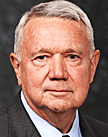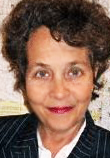Both propositions for geographic representation pass but grassroots group dominates election results
(Updated Wednesday, November 7, 2012 at 3:08pm)
(Updated Wednesday, November 7, 2012, at 5:48pm.)
Austinites for Geographic Representation’s Proposition 3 won a thumping victory Tuesday with its plan for electing 10 council members from geographic districts and electing only the mayor at-large.

“This is a historic moment,” said retired State Senator Gonzalo Barrientos, who chaired the 2012 Charter Revision Committee. He told the crowd made boisterous when the early voting results were announced, “I have never seen the people of Austin come together like they did on this campaign—that is truly American.”
Some five hours later the Travis County Clerk’s report posted at 12:17am this morning indicates that Proposition 3 got 142,615 145,910 votes (60.02 60.15 percent) while Proposition 4 (the 8-2-1 hybrid plan) got 118,855 121,366 votes (51.08 percent). (Updated Wednesday, November 7, 2012, at 5:48pm.) Because Proposition 3 got the most votes it will be implemented and Proposition 4 will be rejected.
These election totals are not quite complete, however, as Williamson County had one voting machine with city election results that will require a technician to read later today. To get the final results when posted click here: City of Austin Final Results of Election November 6, 2012. (Updated Wednesday, November 7, 2012 at 3:08pm)
Proposition 3 requires establishing an Independent Citizens Redistricting Commission to draw council districts the City Council would have no choice but to adopt. How the Commission would be formed and work is specified in Proposition 3: Ordinance No. 20120802-015.
Proposition 3’s wide winning margin of nearly 24,000 24,574 votes (Updated Wednesday, November 7, 2012, at 5:48pm.) was a strong rebuke of the City Council’s action to add Proposition 4 to the ballot. The 2012 Charter Revision Committee recommended the 10-1 plan, albeit by a narrow 8-7 margin, and never discussed the hybrid 8-2-1 plan.

Mayor Lee Leffingwell, who pushed for the hybrid 8-2-1 plan, made last-minute appeals to gather support for Proposition 4 via automated phone calls October 31 and a press conference November 2.
Austinites for Geographic Representation raised nearly $124,000 though October 29—more than six times the $19,192 raised by Austin Community for Change, the proponents for Proposition 4. The final amounts raised and spent by these campaigns will not have to be reported until January 15.
Because Propositions 1 and 2 also passed, elections will be moved from May to November of even-numbered years. The first election under the new system would be scheduled for November 2014.
Proposition 2 triggers a change from three-year terms with a limit of three terms to four-year terms with a maximum of two terms. A provision already in the charter allows a council member to get on the ballot for an additional term through a petition drive that gathers the signatures of 5 percent of the registered voters.
Increasing the size of the council by adding four members will incur a one-time cost of $888,350 for construction and buildout of additional council offices and an annual ongoing cost increase of $1,396,000 per year, according to the city’s statement of Fiscal Impacts for Propositions 1-10.
Time to celebrate
On election night Austinites for Geographic Representation (AGR) supporters gathered at Opal Devine’s on South Congress Avenue for a loud celebration to cap a campaign that began with its first public meeting at Huston-Tillotson University in February 2011.
That small gathering snowballed into a coalition that cobbled together 30 community organizations of all political stripes. (For a list of organizations that endorsed Proposition 3, click here.)
Frances McIntyre of the League of Women Voters Austin Area whooped and hollered when the early voting results were posted shortly after 7pm.
“We’ve tried for 40 years and it’s finally going to happen,” she said.
The first election to offer voters some form of geographic representation in council elections was held in 1973. That effort—like five other attempts, the last in 2002—were all defeated.

Volunteer political consultant Peck Young said of the AGR effort that it was the first time that geographic representation was offered to voters “the right way,” by starting a grassroots movement instead of the previous top-down approaches in which the City Council put something before the voters.
“We have made a fundamental change in this community that will go on for our children and grandchildren,” Young said.

Former Mayor Bruce Todd raised money for the AGR campaign by making phone calls. “Never in my 42 years in Austin have I seen a coalition as diverse as this one put together,” Todd said. “Democrats, Republicans, liberals, conservatives coming together is a good message about working for the common good.”
Young said the Austin American-Statesman’s recent endorsement of the 10-1 plan gave a late but important boost to a campaign that was already running strong. Over the last weekend phone calls were made to some 60,000 people, basically everyone who had not voted early, touting the Statesman endorsement. “Today we pushed the endorsement at the polls,” he said.

AGR campaign coordinator Linda Curtis guided the petition drive that gathered about 33,000 signatures to get the 10-1 plan on the ballot, almost entirely by using volunteers. That’s something Curtis said she was initially concerned about.
“These organizations had the capacity to gather the signatures but I wasn’t sure they would do it,” she said.

Brian Rodgers, whose early financial backing for the campaign was important to building momentum, said he got the return on his investment.
“Good government is all I wanted,” he said.

Roger Borgelt, vice chairman of the Travis County Republican Party and an AGR backer from the beginning, said of the election results, “I think it’s transformational in Austin politics.
“We will have a completely different kind of City Council that represents people in all the different neighborhoods in the city, that cares about people in in the neighborhoods—not what political consultants care about.”
Fred Cantu, president of the Austin Tejano Democrats and a member of the 2012 Charter Revision Committee, said he felt a tipping point in public support was evident when the Committee held a meeting in Oak Hill and heard support for geographic representation from a mostly Republican area.
“On the flip side, I was disappointed in the City Council for putting 8-2-1 on the ballot,” Cantu said. “The Save Our Springs campaign showed us what grassroots can do and we followed that example.”

Brigid Shea, a former city council member and 2012 mayoral candidate—and a leader in the campaign that got the SOS Ordinance passed via a petition drive in 1992—said AGR’s grassroots movement “educated people through the petition drive and educated people along the way in the campaign.
“That’s what was missing the previous six times (when geographic representation was rejected by voters),” Shea said.

Steven Aleman, president of the Austin Neighborhoods Council, said he spent all day at the HEB Grocery polling place in Hancock Center, in north central Austin. The response he was getting made him optimistic “because Central Austin voters were so enthusiastic.”
Volunteer Ed English said he was at the Randalls grocery store at 183 and Braker Lane during the entire early voting period, passing out literature, and then spent all day on election day at the Summit Elementary School polling place.
“I voted there for 28 years and I’ve never seen crowds like today,” English said.
Jeff Jack said, “The simple fact is the system we have today isn’t working for the people of Austin.” He cited the “incredible cost of living and rising property taxes,” adding, “It’s time for a change.”
Frances McIntyre later said she was dismayed by the Proposition 4 campaign tactics. “All their dirty tricks didn’t work, the scurrilous ads and robocalls. They used scare tactics rather than dealing with the issues.”

Attorney David Van Os, a 2006 candidate for Texas attorney general, said of the AGR campaign success, “I think it is a result of an uprising of ordinary citizens in Austin who are tired of city government being dominated by cliques of political insiders.”
“I hope the five members of the city council who tried to squelch democracy (by putting Proposition 4 on the ballot as an alternative to Proposition 3) realize how thoroughly they’ve been discredited.”
This report was made possible by contributions to The Austin Bulldog, which operates as a 501(c)(3) nonprofit to provide investigative reporting in the public interest. You can help to sustain The Austin Bulldog’s coverage by making a tax-deductible contribution.
Related Bulldog coverage: This is The Austin Bulldog’s 38th article covering issues and activities pertaining to proposed changes to the Austin City Charter.
Mayor: My Commission Beats Your Commission: Mayor Lee Leffingwell lifts idea for citizens to draw council districts and undercut opposing proposition, November 2, 2012
Prop 3 Fundraising Outpaces Prop 4: Financial support for 10-1 far outstrip dollars donated for 8-2-1 hybrid, September 29, 2012
Prop 3 Proponents Question Prop 4 Legality: Civil rights attorney and two minority groups say federal preclearance for 8-2-1 is unlikely, October 21, 2012
Poll Triggers Backlash from 10-1 Proponents: Proposition 3 advocates saying Prop 4 playing dirty with a misleading poll, Prop 4 denies the charge, October 17, 2012
Proposition 4 Campaign Reports Finances: Late report indicates $2685 raised in last three months but fails to provide details about campaign expenses, October 10, 2012
Proposition 3 Campaign Reports Finances: 10-1 campaign proponents raised more than $40,000, Proposition 4’s 8-2-1 advocates’ report not submitted, October 9, 2012
Proposition 3 Rally Draws 150-200 People: Crowd hears fiery speeches by proponents of the 10-1 systemfor electing council members, October 8, 2012
Feisty Debate Over Electing Council Members: One panelist argues for no change to the at-large system of City Council elections, October 4, 2012
Proposition 3 and 4 Proponents Rev Their Campaigns: Raising money, organizing troops, and pushing plans for geographic representation on Austin City Council, September 28, 2012
Redistricting Need Not Be a Quintessentially Political Process: Independent redistricting commissions for U.S. states and cities, September 24, 2012
Barrientos Lampoons Prop 4 With a Fable: Other proponents of alternative plans for geographic representation push their points, September 14, 2012
Proposition 3 Advocates Falsely Accuse RECA: Group alleges ‘rumor’ of $100,000 pledge by Real Estate Council to defeat Proposition 3, but RECA says not so, September 12, 2012
No-Change Option Surfaces in Ballot Debate: Former Council Member Bob Binder opposes both options on the ballot for geographic representation, September 11, 2012
The Election Wars Have Begun: Interest in how council members elected running high, as face-off debates abound, September 9, 2012
8-2-1 Near Certain to Go on Ballot: City Council Votes on Second Reading to Put Competition Election Plan on Ballot, July 31, 2012
Hard Fought, Heartfelt Charter Decision: Charter Revision Committee Votes 8-7 to Back 10-1 Plan for Council Elections, February 3, 2012
New Restrictions Proposed for Lobbyist Fundraising: Lobbyists Can Only Give Candidates $25 But Can Collect Unlimited Contributions For Them, January 22, 2012
Committee Debates How to Elect Council: Charter Revision Committee Divided Over Pure Districts vs. Hybrid System, January 9, 2012
Thirteen Charter Changes and Counting: Charter Revision Committee’s Next Job: Tackle Plan for Geographic Representation, December 14, 2011
Council Confirms November 2012 Election Date for Charter Amendments: Resolution Ensures Citizens Initiative Won’t Force May 2012 Charter Election, November 3, 2011
Coalition Launching Petition Drive to Get on the Ballot for May 2012 Election, October 18, 2011
Broad Community Interest Focusing on How Mayor and Council Members Elected, October 4, 2011
Coalition Nearing Petition Launch for Grass-roots Council District Plan, August 24, 2011
Maps Prove Select Few Govern Austin: Forty Years of Election History Expose Extent of Disparity, August 4, 2011
Petition Launch Imminent to Force Election for Geographic Representation in City Elections, March 7, 2011







